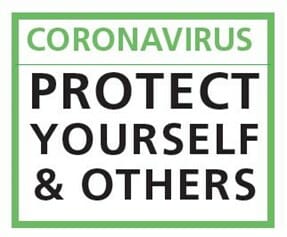Sensible pre-cautions during the Corona Virus from the Church of England

Guidance for churches
This guidance, which draws on advice about best practice from the NHS and Public Health England is designed to:
- Help you to develop and enhance local preparations.
- Enable you to continue to provide spiritual and pastoral care to your parishes and those within the wider community.
- Explain how people engaged in pastoral ministry with individuals who are or may be infected can protect themselves, their families and the people they work within the course of their daily work.
- Ensure that parishes and chaplaincy teams maintain their presence as agents of spiritual and pastoral care in a way that both protects those engaged in ministry and protects those who need their support and help.
In light of the continued increase of Coronavirus (COVID-19) cases in the United Kingdom, our guidance is to suspend the administration of the chalice as well as physical contact during the sharing of the Peace, blessing or “laying on of hands”. We advise that all priests should:
- Offer Communion in one kind only to all communicants i.e. the consecrated bread/wafer/host, with the priest alone taking the wine;
Suspend handshaking or other direct physical contact during the sharing of the Peace;
-
Suspend direct physical contact as part of a blessing or “laying on of hands”.
The Archbishops of Canterbury and York have written to clergy to update on this guidance.
What should churches do now?
Please note that ‘Washing hands’ always refers to washing with soap and water for at least 20 seconds or using a hand-sanitiser with minimum 60% alcohol content. See NHS guidance and download a poster version to display.
- Ensure everyone maintains good hygiene (we should be doing this already as part of normal good practice) at all gatherings, whether services or other occasions. This includes those handing out books etc or having other direct physical contact with numbers of people, as well as those administering the Eucharist (see below for more guidance):
- Provide hand gel at entrances and ensure there is a good supply of soap or hand gel in cloakrooms and kitchens and any other appropriate areas.
- The best way of protecting us from the spread is for everyone to use universal good hygiene, – this means everyone, all the time, which will effectively disrupt the spread of the virus. Display the public information poster attached, which states:
- Catch it – sneeze into a tissue.
- Bin it – bin the tissue.
- Kill it – wash your hands.
- Do not touch your face unless you’ve washed your hands.
- The Archbishops of Canterbury and York have written to clergy to advise that the Common Chalice/Cup now be suspended until further notice. We advise that all priests should
- Offer Communion in one kind only to all communicants i.e. the consecrated bread/wafer/host, with the priest alone taking the wine;
- suspend handshaking or other direct physical contact during the sharing of the Peace;
- suspend direct physical contact as part of a blessing or “laying on of hands” (see FAQs below for more information on this)
- Churches are encouraged to complete a Coronavirus Parish Continuity Plan to ensure, as far as possible, their continued mission and ministry. We have already taken action on this.
- Intinction is not recommended as an alternative to the Common Chalice/Cup. It is a route for transmission from the individual through handling the wafer/bread/host, and tiny fragments could affect people with allergies to gluten etc.
- Please note that the distribution of individual cups for use by communicants is not a lawful practice in the Church of England.
- Ask those attending services to wash their hands as they come into church.
- Ensure ministers of the Eucharist wash their hands before and after distributing communion.
- Suspend catering (teas, coffees etc.) where multiple people touch mugs, utensils and foodstuffs.
- No pastoral visits should be undertaken to people who are self-isolating until isolation ends. However do offer phone support.
- When visiting parishioners at home, wash hands before and after giving the sacraments.
- Refrain from passing collection plates around.
- Suspend the use of holy water stoups.
- Wash vestments (surplices, cassocks) on the hottest cycle you can without damaging them. Chasubles etc. which could become contaminated, may not be able to be washed. Instead, they should be securely stored away from people, ideally in a well ventilated and brightly sunlit area, for at least 48 hours before re-use,
- Visits to people in care homes or Hospitals should follow advice from the staff on infection control.
- Ensure good regular cleaning of surfaces people touch regularly, including such things as door handles, light switches etc.
